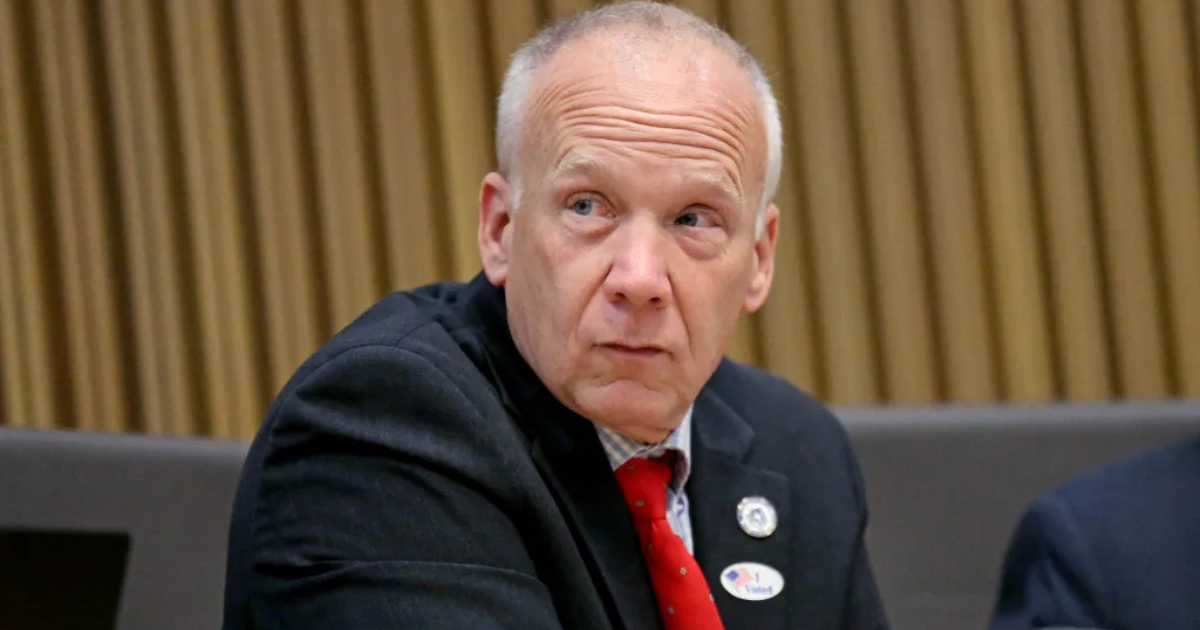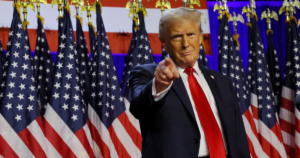Massachusetts BTC Reserve Laws are pioneering state-level cryptocurrency adoption, which has sent shockwaves through both traditional finance and cryptocurrency circles. Is this the beginning of a mass rollout of how states tackle digital assets?
Key-Takeaways:
- Innovation meets fiscal responsibility, as Massachusetts’ BTC Reserve Laws permit a maximum of 10 percent of its $9 billion stabilization fund to be used to invest in Bitcoin.
- This legislation will keep Bitcoin lending revenue-generating while managing its risks effectively because it protects custodians and ETPs to ensure public funds are secure.
Investment Framework
 This bold move in state-level crypto adoption is signaled by Massachusetts BTC Reserve Laws. It reflects a huge change in how traditional Democratic strongholds are approaching digital assets. It’s spearheaded by Republican Senator Peter Durant, who took a forward-thinking approach to finance.
This bold move in state-level crypto adoption is signaled by Massachusetts BTC Reserve Laws. It reflects a huge change in how traditional Democratic strongholds are approaching digital assets. It’s spearheaded by Republican Senator Peter Durant, who took a forward-thinking approach to finance.
The intention of the legislation is to include Bitcoin into the state’s financial strategy. It suggests staking BTC reserves as a defense versus inflation and doubt within the economy. Such a position would make Massachusetts a leader in crypto-driven fiscal innovation.
But if this law goes into effect, it might pave the way for broader cryptocurrency adoption. However, it brings out the bipartisan interest in leveraging blockchain technology. Other states are now setting a precedent for Massachusetts to follow.
The Massachusetts BTC Reserve Laws initiate a ground-breaking framework that allows for the creation of a ‘Commonwealth Bitcoin Strategic Reserve.’ This would then let the state put as much as 10% of its $9 billion stabilization fund in Bitcoin.
Unlike most other states, Massachusetts is taking an ambitious approach. According to the law, only unspent, uncommitted, or unencumbered funds may be used to invest in Bitcoin.
Allocating these resources with such care ensures, at least in part, fiscal responsibility while simultaneously exploring digital asset opportunities. It aligns with a balanced strategy; it balances to emphasize innovation and prioritize existing financial stability.
If this succeeds, it could pave the way for other states. With cryptocurrency integration in public finance emerging, Massachusetts is becoming a pioneer in that.
Security Measures
 Massachusetts BTC Reserve Laws have very strict security provisions to prevent public funds from being squandered. Focusing on the use of qualified custodians and exchange-traded products (ETP) for the security of digital assets is something they stress.
Massachusetts BTC Reserve Laws have very strict security provisions to prevent public funds from being squandered. Focusing on the use of qualified custodians and exchange-traded products (ETP) for the security of digital assets is something they stress.
The legislation incorporates institutional-grade security and compliance so that people trust it. It also authorizes the state treasury to loan bitcoin and other controlled assets.
This provision will allow Massachusetts to capture revenue streams. On the other hand, it helps to preserve a balanced risk approach to protect taxpayers’ interests.
This innovative approach distinguishes the state from past reserve management practices. But Massachusetts is leading the way in transforming the centuries-old financial solutions with modern systems.
At a pivotal moment of cryptocurrency adoption, Massachusetts BTC Reserve Laws rise. States like Wyoming and Texas are looking to follow similar paths, and Massachusetts’ initiative points a way for others.
Wyoming took its first bold step toward a strategic bitcoin reserve! Thank you Rep. Wasserburger for introducing legislation to allow permanent funds to diversify into Bitcoin. This forward-thinking approach will benefit our state as we lead the nation in financial innovation!
— Senator Cynthia Lummis (@SenLummis) January 17, 2025
With federal talks on the use of digital assets in national reserves underway, the legislation comes at an opportune time. Its overlap could push it over the top, amplifying its capability to drive the creation of national cryptocurrency policies.
A Massachusetts makeover could be a harbinger of regional and national change. In its proactive manner, the state takes the lead of being a digital asset innovator.
The growth in acceptance of cryptocurrency as a legitimate asset class is obvious. This is inspired by big companies like MicroStrategy that have demonstrated it’s possible to have massive amounts of Bitcoin investments.
In addition, the Massachusetts BTC Reserve Laws contrast with the international trends. Countries like Hong Kong and Germany are also contemplating the same tactics to add digital assets to their reserves.
Massachusetts aligns itself at the forefront of innovation by working with these global movements. That highlights the growing confidence in cryptocurrencies in institutional finance.
The Massachusetts BTC Reserve Laws are designed in a sensitive way to respond to matters raised on state-level cryptocurrency investment. The legislation also reflects sound fiscal prudence by limiting exposure to no more than 10 percent of the stabilization fund.
It strikes a mediating balance between innovating and good risk management, measured. This represents pushing boundaries to explore the benefits cryptocurrency brings without the instability of financing.
With this framework, Massachusetts leads the way in a responsible path to integrating digital assets. The state shows us that innovation and prudence may fit together in public finance.
A forward-thinking way of managing assets is exhibited in the lending of Bitcoin holdings provisions origin in the Massachusetts BTC Reserve laws. This provision also provides a new facet to the strategy of the state based on the financial instrument of generating more revenue from lending out.
This feature could further help the development of the cryptocurrency markets in general. The sophisticated nature in which Massachusetts manages its digital asset is demonstrated by its capacity to engage in such lending markets. It reveals a state that is forward thinking.
While other states consider similar legislation, the Massachusetts BTC Reserve Laws provide an important look into what works in the way of integrating cryptocurrency at the government level. The careful handling of security, investment limits, and asset management by the law creates a solid foundation for digital asset responsibility adoption.
This framework offers a blueprint for other states who may pursue a commensurate effort. Massachusetts might log a successful model for state-level Bitcoin reserves to follow across the country.
It’s a template to follow; Massachusetts leads by being innovative and cautious, setting the stage for a potentially national shift. The approach could spark a new cycle in the digital asset adoption in the state financial strategies.
Conclusion
The Massachusetts BTC Reserve manufacturing laws get forward with cash administration as we understand it in a cutting-edge time; they upgrade on the manner in which governments deal with digital cash. With more states even considering crypto integration, Massachusetts’ Answer could serve as a template for responsible legislation.
Could Massachusetts set off similar movement in other states by enacting cryptocurrency reserves? Let us know what you think.











